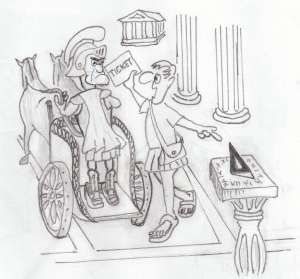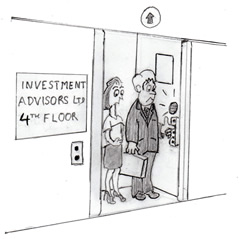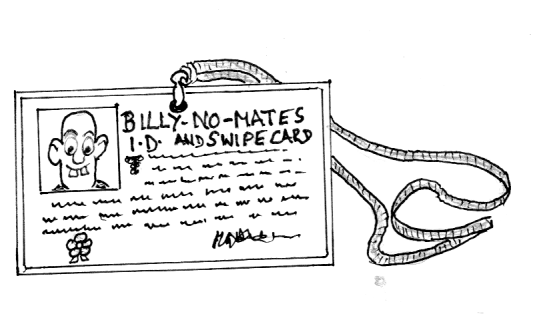The car next to the only space left in the car park always being parked over the line
It is not generally realised that parking bugbears , of which many quots have been posted , are probably as old as the wheel .But we have to go back to medieval times to find the first recorded reference to a car park described in the Quot Domesday Book as a ‘wagon pound’ in the Wessex market town on Puddlesby-Mallet . The congestion of wagons and carts on market days led them to being banned from the trading precinct and they had to be ‘penned’ somewhere nearby , at first in a fallow field but eventually whole ‘parks’ were needed as demand grew. It was in one such that a villainous local landowner Wufflethrolf the Mean first realised that he could start charging a few groats for ‘parkage’ but then went further to impose harsh penalties for ‘wrongful placements’ which included swingeing fines , time in the stocks or ‘ ye clampe’. His bailiffs patrolled the park on the lookout for carts parked broadside or diagonally hence the old saying:
“ Let woe betide and grief pursue
The swain who leaves his cart askew.”
Any towns with the syllables ‘Pound’ or ‘Pen’ or ‘Penn’ in their name were in their time famous for their wagon parks the best of which offered plentiful grazing and on-site services of wheelwrights and farriers , fore-runners of Motorway Service Areas . There are no early records but actual marked out parking spaces probably pre-dated even that , and it’s the sort of thing the Romans would have done , but parking over the line has certainly become a time-honoured observance still practiced by traditionalists
There are no early records but actual marked out parking spaces probably pre-dated even that , and it’s the sort of thing the Romans would have done , but parking over the line has certainly become a time-honoured observance still practiced by traditionalists
(Derek Rubble, Wincanton) - QQQQ*

